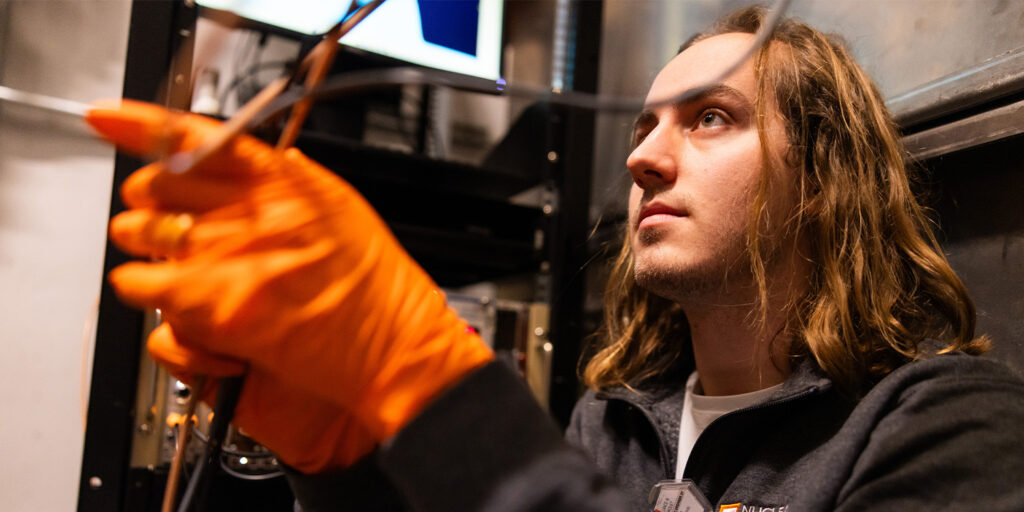The Department of Nuclear Engineering (NE) strives to develop and maintain a nationally and internationally recognized program that promotes a passion for understanding and applying the knowledge of nuclear science and engineering and to help develop the next generation of technical leaders of the global nuclear enterprise.
Download the NE Graduate Student Handbook.
Our faculty consists of diverse research expertise and are considered to be national and global leaders in their respective fields. Students gain expertise as scientists and engineers who advance the application of radiation in detection, nuclear security, fuel cycles, fusion technology, reliability and safety, health physics, and basic research. Visit the Graduate Admissions website and the Graduate Catalog for more information on applying to NE’s graduate program.
Graduate Degrees
NE offers graduate programs leading to the Master of Science and Doctor of Philosophy degrees. In addition, there are a few graduate certificate options available.
The NE graduate program is designed for graduates of accredited undergraduate programs in engineering, physics, chemistry, or mathematics. Students may select from a broad array of research topics ranging from fission and fusion energy to nuclear security. Students may also elect a radiological engineering concentration, which prepares students for careers in the radiation safety field (health physics). The department also offers a Master of Science in Medical Physics and a Graduate Certificate in Medical Physics.
The department also offers an accelerated Five-Year BS/MS program in which top undergraduates can begin graduate course work and graduate research while still completing their undergraduate studies.
All entering students must have, as a minimum, competency in mathematics through ordinary differential equations, competency in atomic and nuclear physics, and competency consistent with an introductory course in nuclear engineering. If such competencies do not exist, the student must take appropriate courses for undergraduate credit. More details about these requirements are provided on the Graduate Admissions page.
NE Department Head and Director of Graduate Studies Brian Wirth is the contact for all interested students, both those with nuclear engineering degrees and those from other disciplines.
Financial Support Opportunities
NE has Graduate Teaching Assistant and Graduate Research Assistant openings with extremely competitive stipends, especially considering the low cost of living in Knoxville. The department has the largest Nuclear Engineering PhD enrollment in the country and 98% of those students are fully funded through the university and other external entities. Read more about financial aid available to graduate students.
Student Life
The University of Tennessee, Knoxville is nestled at the base of the beautiful Smoky Mountains in a growing and vibrant city. With easy access to Oak Ridge National Laboratory, Y-12 National Security Complex, and 100+ nuclear-related companies, making UT an excellent location to learn and thrive. NE students work side by side with faculty on projects for research sponsors such as the US Department of Energy (DOE), Nuclear Regulatory Commission, NASA, DOE national laboratories, industrial organizations, and nuclear utilities. Read more about life in Knoxville.
